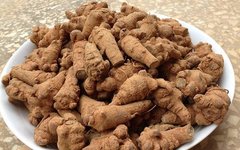Medicinal cuisine is based on the theories of Yin-Yang, the Five Elements, organ systems, meridians, and dialectical treatment in Traditional Chinese Medicine (TCM). It combines food and medicinal properties according to the principles of TCM formulae, using the characteristics of food and herbs to correct the functional imbalances of the organs, or to enhance the body’s resistance and immunity through the four different properties of food and herbs: cold, hot, warm, and cool.

Ingredients for Medicinal Cuisine

1
Broadly defined medicinal cuisine ingredients:
Common grains, beans, fruits, nuts, and various vegetables can be used for dietary therapy and medicinal cuisine. Additionally, animal products such as poultry, livestock, or seafood are also included in the selection.
2
Narrowly defined medicinal cuisine ingredients:
This mainly refers to medicinal herbs that can be used as both food and medicine. For example, Shan Yao (Dioscorea opposita) is both a food and a good medicine for tonifying the kidneys and strengthening the spleen. Bei Mu (Fritillaria) and Ku Xing Ren (Bitter Apricot Kernel) become effective medicinal dishes for phlegm and cough after processing. Ejiao (Donkey-hide Gelatin), made from donkey skin, when combined with black-boned chicken, has excellent effects for nourishing blood and enhancing beauty.
3
Condiments and beverage ingredients:
Sugar, wine, oil, salt, soy sauce, vinegar, etc., are all considered ingredients for medicinal cuisine, especially beverages like honey and cane sugar; protein sugar and stevia.

Commonly Used Medicinal Herbs in Cuisine

San Qi (Notoginseng)
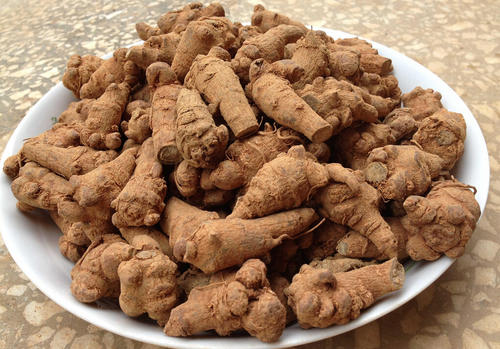

【Functions and Indications】Dispels blood stasis and stops bleeding, reduces swelling and alleviates pain. Used for hemoptysis, hematemesis, epistaxis, bloody stools, menorrhagia, traumatic bleeding, chest and abdominal pain, and swelling from falls. Stewed chicken or ribs with San Qi is beneficial for tonifying Qi and blood, treating menorrhagia, postpartum weakness, spontaneous sweating, night sweats, and has a warming and strengthening effect. It also treats headaches and weakness in the lower back in the elderly.
Shan Yao (Dioscorea opposita)
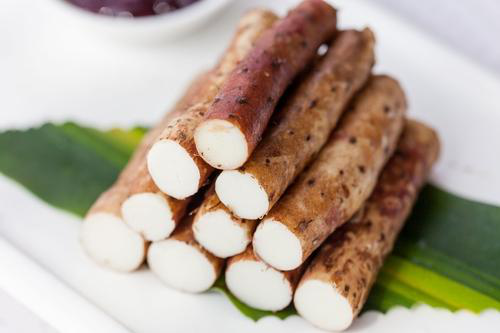

【Functions and Indications】Tonifies the spleen and nourishes the stomach, generates fluids and benefits the lungs, tonifies the kidneys and astringes essence. Commonly used in dietary therapy as porridge made from Shan Yao and rice. Its health benefits are based on its ability to convert into male or female hormones according to the body’s needs, supplementing hormonal imbalances caused by aging and disease, thus maintaining vitality, enhancing disease resistance, accelerating tissue repair, and preventing and slowing down malignant tumors, diabetes, arteriosclerosis, heart disease, obesity, and Alzheimer’s disease.
Shan Zha (Hawthorn)
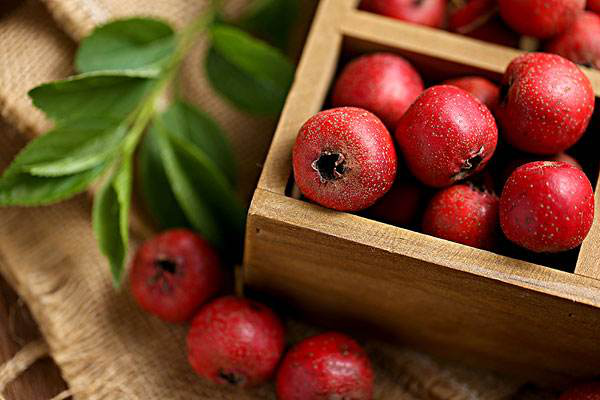

【Functions and Indications】Aids digestion and strengthens the stomach, promotes Qi and disperses blood stasis. Used for food stagnation, abdominal distension, diarrhea, menstrual pain, postpartum stasis, chest pain, hernia pain; hyperlipidemia. Fried Shan Zha enhances its digestive and stagnation-relieving effects. Used for food stagnation and diarrhea.
Shi Hu (Dendrobium)
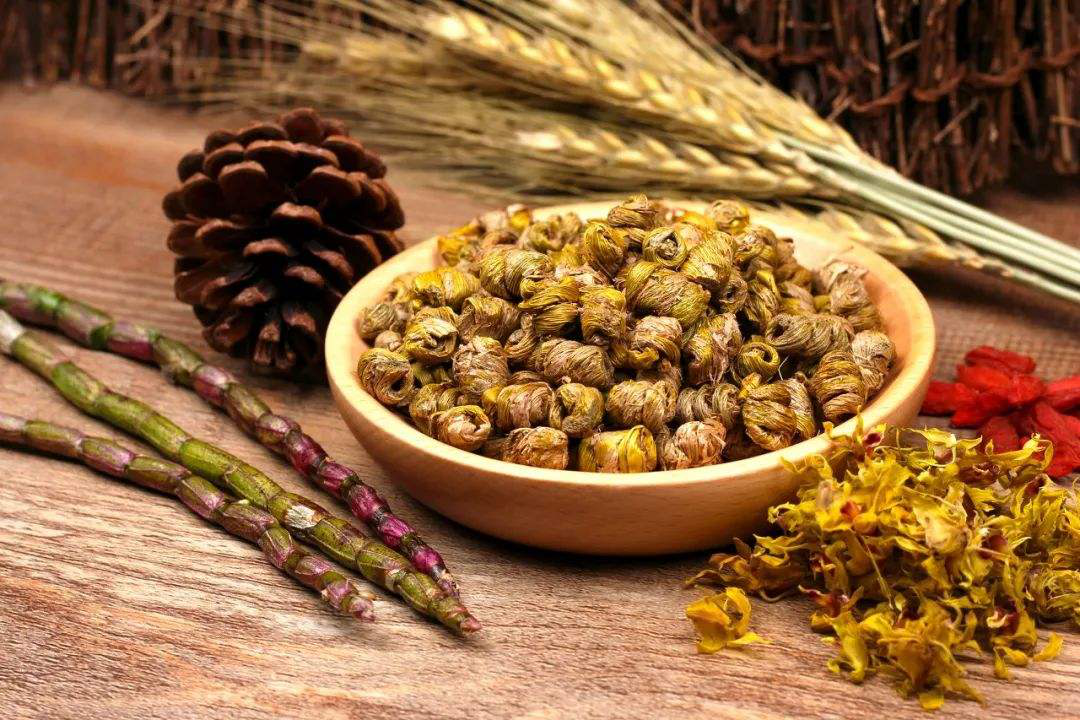

【Functions and Indications】Benefits the stomach and generates fluids, nourishes Yin and clears heat. Brewed in water as a tea, it is used to nourish Yin, generate fluids, enhance physical strength, benefit the spleen and stomach, protect the liver and gallbladder, clear empty heat, strengthen tendons and bones, inhibit tumors, brighten the eyes, and prolong life.
Tian Ma (Gastrodia elata)
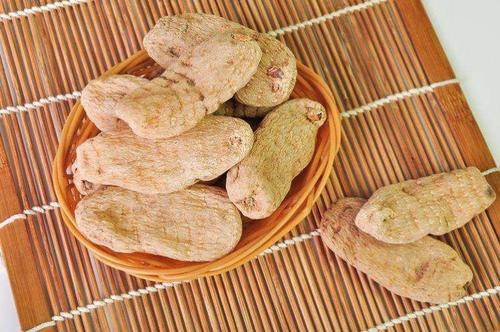

【Functions and Indications】Calms wind and stops spasms, pacifies liver Yang, dispels wind and unblocks meridians. Tian Ma is moistening without being drying, primarily entering the liver meridian, excelling in calming the liver and subduing wind. It is a key herb for symptoms of internal wind movement, dizziness, and vertigo, regardless of deficiency or excess. Tian Ma pigeon soup is commonly used for dizziness in middle-aged and elderly individuals.
Bei Sha Shen (North American Ginseng)
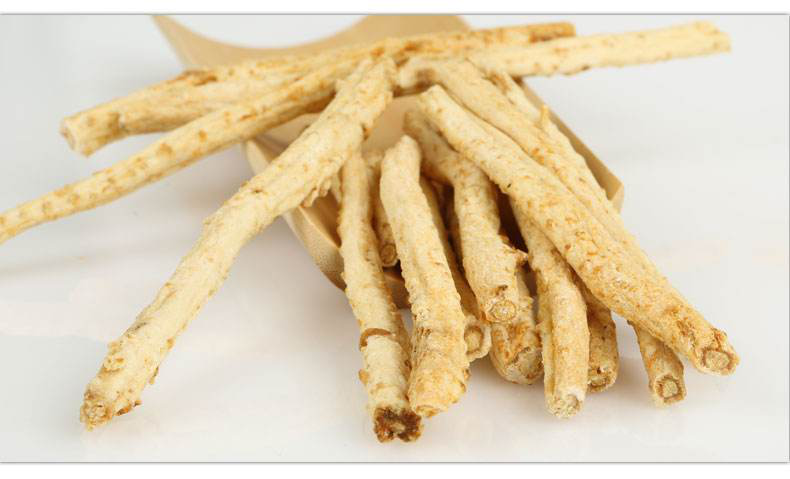

【Functions and Indications】Nourishes Yin and clears the lungs, benefits the stomach and generates fluids. Used for dry cough due to lung heat, chronic cough with phlegm and blood, and thirst due to heat illness. Bei Sha Shen and lily duck soup has the effect of nourishing Yin and moistening the lungs, commonly used for dry cough due to lung Yin deficiency, dry mouth and throat, and red tongue with little fluid.
Qian Shi (Euryale Seed)
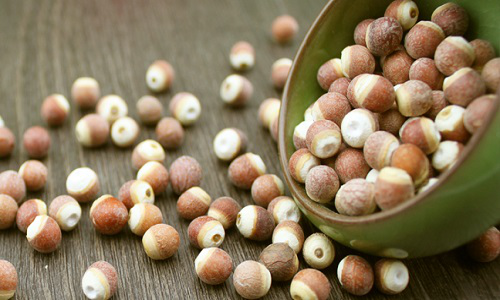

【Functions and Indications】Benefits the kidneys and astringes essence, strengthens the spleen and stops diarrhea, eliminates dampness and stops leucorrhea. Used for nocturnal emissions, frequent urination, chronic diarrhea due to spleen deficiency, and leucorrhea. Lotus seed and Qian Shi porridge can be used for nocturnal emissions, frequent urination, and chronic diarrhea.
Yu Zhu (Polygonatum)
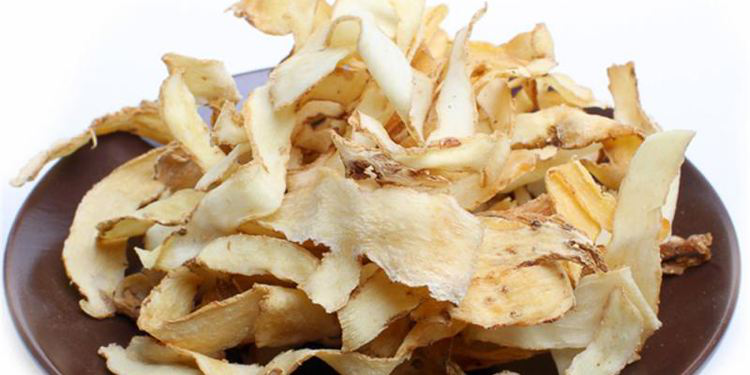

【Functions and Indications】Nourishes Yin and moistens the lungs; benefits the stomach and generates fluids. Used for dry cough, chronic cough, dry throat and mouth due to heat illness, internal heat thirst, Yin deficiency with external pathogens, dizziness, and muscle cramps. Yu Zhu stewed with fish head: the warm and sweet nature of the fish combined with the nourishing properties of Yu Zhu makes it suitable for patients with liver Yin deficiency in the late stages of chronic hepatitis.
Chen Pi (Aged Tangerine Peel)
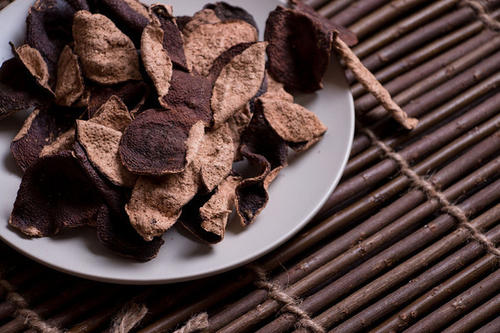

【Functions and Indications】Regulates Qi and strengthens the spleen, dries dampness and transforms phlegm. Used for abdominal distension, poor appetite, vomiting, and excessive phlegm. Chen Pi decocted with rice can be consumed as porridge to regulate Qi, strengthen the spleen, and transform phlegm to stop cough.
Bai He (Lily Bulb)
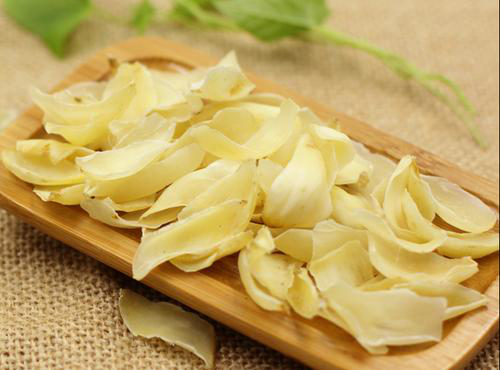

【Functions and Indications】Nourishes Yin and moistens the lungs, clears the heart and calms the spirit. Used for dry cough due to Yin deficiency, cough with blood, irritability, insomnia with vivid dreams, and mental confusion. In autumn, porridge made from Bai He and rice is an excellent dish for nourishing Yin and moistening the lungs.
Long Yan Rou (Longan Flesh)
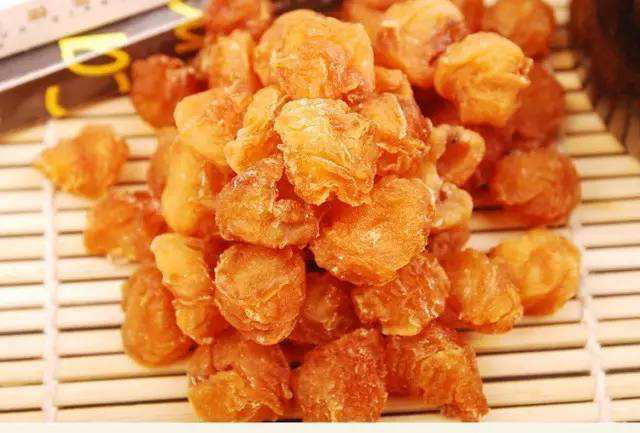

【Functions and Indications】Nourishes the heart and spleen, tonifies blood and calms the spirit. Used for Qi and blood deficiency, palpitations, forgetfulness, insomnia, and blood deficiency with pale complexion. Long Yan Rou, red dates, and rice cooked together as porridge can tonify Qi, nourish blood, and calm the spirit to aid sleep.
Chi Xiao Dou (Adzuki Bean)
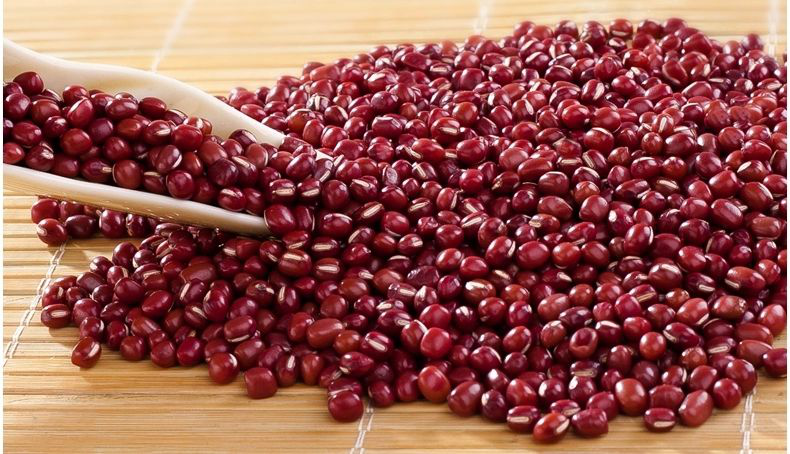

【Functions and Indications】Promotes urination and reduces swelling, detoxifies and drains pus. Used for edema, beriberi, jaundice, rheumatic heat, carbuncles, and abdominal pain from intestinal abscess. Chi Xiao Dou, Yi Yi Ren (Job’s Tears), and rice cooked together as porridge can eliminate acne, dark spots, and improve skin tone.
Huang Qi (Astragalus)
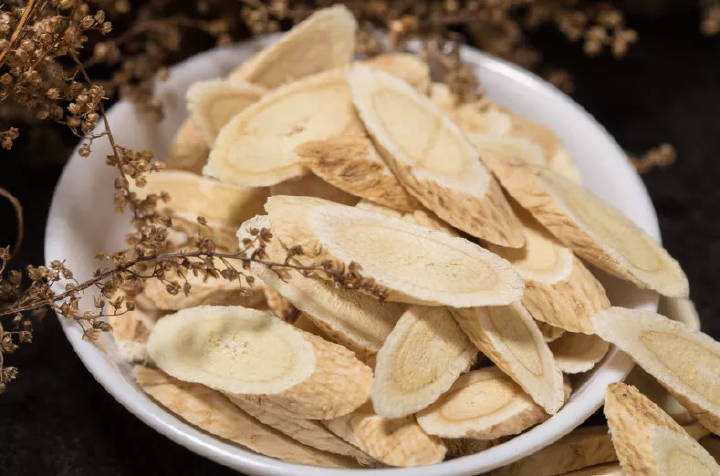

【Functions and Indications】Tonifies Qi and raises Yang, stabilizes the exterior and stops sweating, promotes urination and reduces swelling, generates fluids and nourishes blood, moves stagnation and relieves pain, expels toxins and drains pus, promotes wound healing. Used for Qi deficiency, fatigue, poor appetite, diarrhea, rectal prolapse, bloody stools, menorrhagia, spontaneous sweating, Qi deficiency edema, internal heat thirst, blood deficiency with pale complexion, hemiplegia, numbness, carbuncles that are difficult to heal, and chronic non-healing wounds. In winter, Huang Qi stewed with Dang Gui (Angelica) and old hen is an excellent dish for tonifying Qi and strengthening the body.
Seasonal Medicinal Cuisine Tips↓↓↓TCM believes that medicinal cuisine can be consumed throughout the year, but it must be selected according to individual constitution and seasonal climate. Here are some recommended common medicinal cuisine ingredients based on seasonal characteristics to assist your year-round health maintenance.
01
Spring
As the weather warms and everything comes to life, it is advisable to use neutral tonics, such as Sheng Sha Shen (Fresh Ginseng), Xi Yang Shen (American Ginseng), Tai Zi Shen (Prince Ginseng), Dang Shen (Codonopsis), Gou Qi Zi (Goji Berries), Huang Qi (Astragalus), etc., to help the body’s righteous Qi flourish, such as Huang Qi stewed with chicken.
02
Summer
In hot weather, it is advisable to use cooling tonics, such as Huo Xiang (Agastache), Zi Su (Perilla), Lian Zi (Lotus Seed), Bo He (Mint), and Lu Dou (Mung Bean) to generate fluids and relieve summer heat, such as Fu Ling (Poria) and Lu Dou porridge.
03
Autumn
As the weather becomes dry and windy, it is advisable to use moistening tonics, such as Jin Yin Hua (Honeysuckle), Mai Dong (Ophiopogon), Chong Cao (Cordyceps), Bai He (Lily Bulb), Yun Er (Tremella), honey, and autumn pears to moisten dryness and pacify wind, such as rock candy Tremella soup and honey-baked Bai He.
04
Winter
In cold weather, it is advisable to use warming tonics, such as Ban Lan Gen (Isatis), Shan Yao (Dioscorea), Dang Gui (Angelica), Da Zao (Jujube), Long Yan (Longan), He Tao (Walnut), and Du Zhong (Eucommia) to warm Yang and dispel cold, such as lamb and Dang Gui hot pot and Du Zhong stir-fried kidney.
Text Source: Chengdu Shuangliu District Traditional Chinese Medicine Hospital
Image Source: Internet


